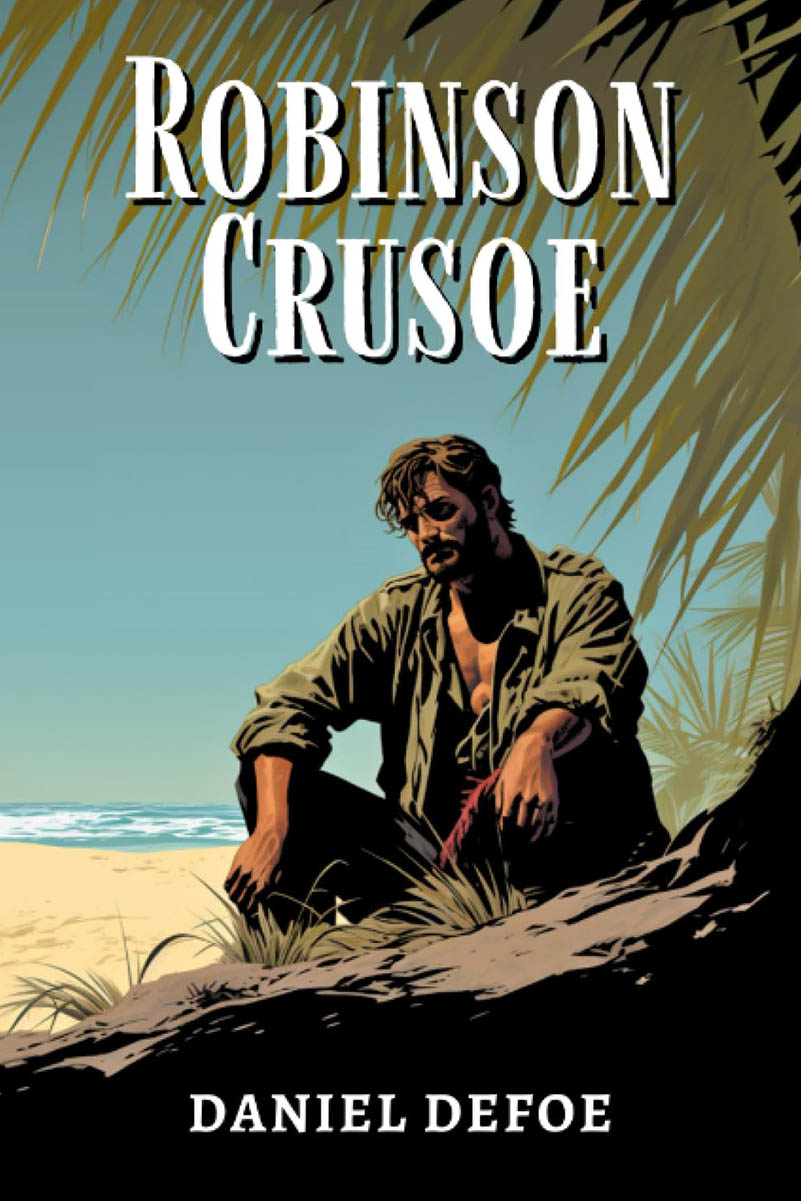Robinson Crusoe
by Daniel Defoe
“Thus fear of danger is ten thousand times more terrifying than danger itself.”
Robinson Crusoe by Daniel Defoe is littered with such idioms and musings. Released in 1719, Robinson Crusoe tells the story of its titular character as he survives in isolation for 28 years on an island, enduring possible cannibalization and attacks. Defoe plays deep into religious belief, calling upon Providence as what had saved
Crusoe from death.
The novel feels like a call for self-dependency and self-discovery. Robinson Crusoe leaves on his ill-fated adventure in search of ‘finding himself.’ And he does, in some sense of the word. He leaves the confines of money, community, and economic instability, in order to be purely self-sufficient and enjoy life in its purest form, without societal boundaries.
Robinson Crusoe is explicitly didactic. It incessantly refers to the idea of “Providence,” in which God guides its followers down the right path, provides for them, and protects them from undeserved harm. Crusoe, having been isolated from other humans on his island for decades, begins to preach the effects of Providence to his readership, most likely as a way to cope from the intense loneliness. He says, “I resolved it all at least into thankfulness to that
Providence which had delivered me from so many unseen dangers.” Although most readers would not have been in such a dire situation as Crusoe, many would be able to relate to the feeling of loneliness. To Crusoe, the idea of providence takes on a character, saving him from possible harm. Crusoe was involved in a shipwreck and was the only survivor—having such immense luck reinforces his belief that God is watching over him. Robinson Crusoe emphasizes the importance of God, especially to those who are lost and alone, just as Crusoe himself is. Crusoe puts his faith into God, and for him, it pays off: he gets saved from the island, marries, accumulates wealth, and lives happily. The novel teaches the reader that if they follow the same belief and faith as Crusoe, they too can end up as fortunate as he.
To preserve the effect of realism, Daniel Defoe takes many steps. He promoted the novel as a diary of some sort, omitting his authorship from publications. Robinson Crusoe also has immense detail, comedic dialogue, and personality to its characters. Crusoe gives his reader extensive amounts of background information on himself, such as the fact that his original name, “Robinson Kreutznaer” was manipulated by “the usual corruption of words in
England” and has been changed to Crusoe. His story is so in-depth that it feels impossible for it not to be real. The novel explores the plights and discoveries of each year and how Crusoe grows and builds a home on the island, in order to make it further realistic. Although the story itself is outlandish, the character is not. Crusoe is an everyman, a man who simply wants to travel the world but has bad luck. The story feels plausible—it would be if both the character and the story were outlandish. By juxtaposing Crusoe’s normalcy with an extreme tale, the story levels out and becomes both realistic and interesting for the reader.
Robinson Crusoe, in many ways, could be considered the first novel in the history of English literature, as those before it didn’t have the same level of complexity and realism that it had.



